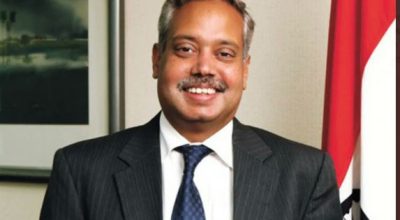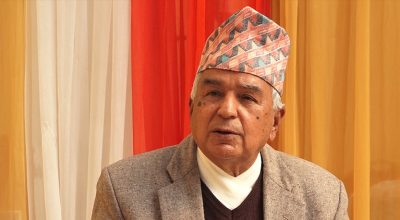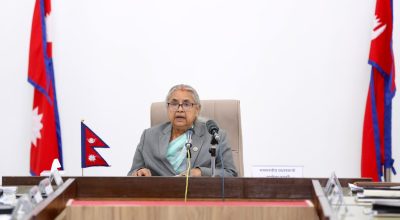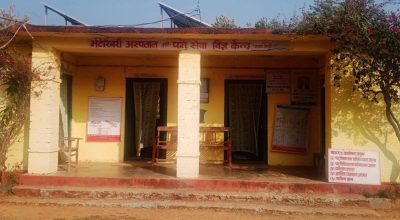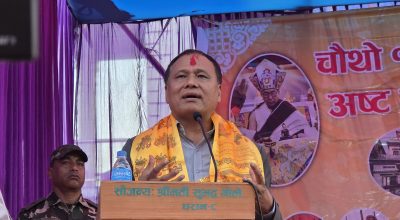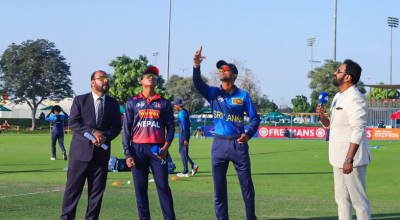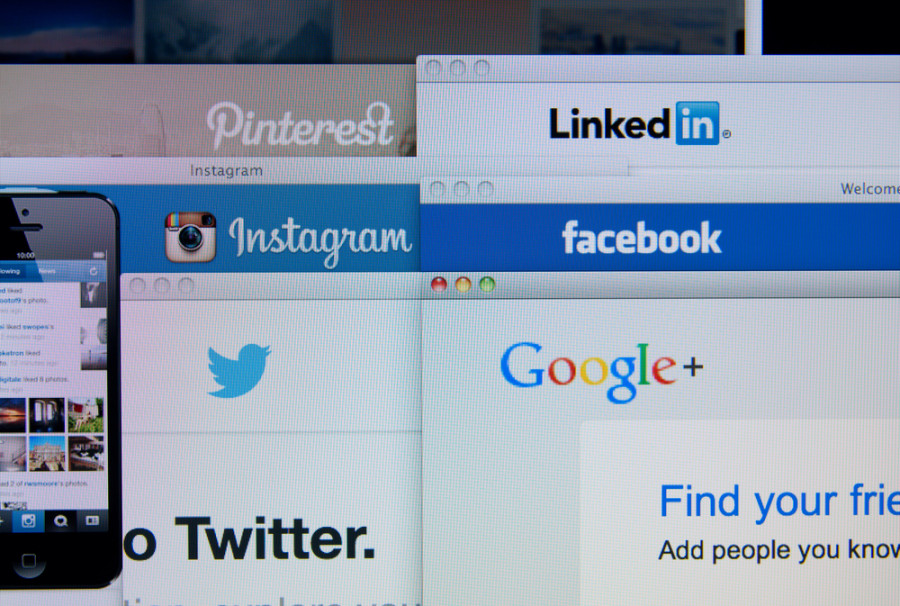
Hemanta Joshi
Kathmandu: Just a week away for the November 20 general elections, the social networking sites, especially Facebook, are flooded with election related adverts of the candidates.
Most of the candidates have utilised information technology by making their publicity through Facebook, Twitter, Instagram, TikTok and other social networking platforms.
Publicity on the social platform seems inevitable but it has connections to economic dimensions while looking at election-related activities.
The wannabe lawmakers are deemed neglecting the existing laws and fiscal discipline for online advertisements due to poor oversight of the state mechanisms and loopholes.
According to Meta Ads Library Report released by the Meta, the mother company of Facebook, a total of 5,560 Facebook pages and profiles have been used for election advertisements boost in the past one month.
This number is of the paid ads made only for election and political related agendas in view of the upcoming elections.
As shared by the Meta details, 67,036 US Dollars have been spent till this afternoon for the online ads of election related contents.
The Nepal Rastra Bank (NRB) has stated that the country’s foreign exchange reserve has reduced, alarming the economic indicators in disarray. The election related campaigns and ads publicity in the US Dollar could cost dearer for the balance of payment in the country.
The massive online advertisements’ flow has not only reduced the balance of payment but also is a violation of laws.
According to NRB, transactions of the election ads taking place on the social networking sites is under doubts.
Executive Director of Foreign Exchange Management Department of the NRB, Ramu Poudel, said that Dollar Card has been issued to spend up to 500 US Dollars in a year to an individual residing in Nepal.
“Only 500 US Dollars could be spent in a year from Nepal. But, if someone has earned 5,000 US Dollars in a year, additional facility could be obtained through credit card in such a situation,” Poudel added.
Policy-level question
A government study shows that there is a loss of huge amount of revenue as the social sites providing their services in Nepal have not come under the tax ambit.
As per a report prepared by carrying out study regarding increase in revenue scope-2079 by the Revenue Advisory Committee, a trend of advertizing in social networking sites has increased all of sudden as of late. “A trend of advertising in social networking sites, which have no legal registration, has increased all of sudden in Nepal. Such social sites have been taking away billions of rupees annually from Nepal.”
After Revenue Advisory Committee suggestion that social sites have been taking away huge amount of foreign exchange from Nepal and they should be brought under the tax ambit, the government in its budget of current fiscal year 2079/80 has mentioned about bringing such transaction under the tax ambit.
Similarly, Director General of Inland Revenue Department, Ritesh Kumar Shakya, said arrangement related to digital service tax has been made for the first time through Economic Act-2079. “Two per cent digital service tax and 13 per cent VAT has been imposed on digital services available to customers in Nepal.”
“Some companies have filed application and are in the process of registration and some have shown interest for the registration, he said.
Shakya mentioned that the Department has launched digital portal for the registration of the companies based on social sites and internet that have been providing service in Nepal.
There are 13.3 million Facebook users in Nepal as of 2022, says the report referring to data of dataportal.com.
Similarly, advertisement income of per advertiser of Facebook had reached 40.96 US dollars in 2021. Facebook has been making income of more than six billion rupees annually for viewing advertisement by Nepali Facebook users.
Which candidate spent how much?
Advertisements in social networking sites are pitched in such a way that the information reaches only a targeted group of certain geography, gender and age group. The access of such boosted posts is based on the money spent for the same.
The candidate hopefuls of upcoming parliamentary elections here are leveraging the social networking sites and running advertisements for their targeted constituencies.
The statistic of Meta shows that Shree Ram Gurung, candidate to House of Representatives (HoR) member from Kathmandu constituency no 5, spent the highest amount- USD 3,125-during a month for boosted posts.
Similarly, Sushant Shrestha, who is running for HoR member as an independent candidate from the same constituency has already spent USD 2,238 for the paid advertisement about his candidacy.
CPN (UML)’s Kiran Poudel, HoR member candidate from Kathmandu constituency no 1 has spent 1,350 USD so far. Dr Suresh Basnet, running for HoR member from Bhojpur constituency no 1, has paid USD 1,800 to boost his Facebook account.
Likewise, USD 1,268 has been spent to boost the Facebook page named ‘Let’s reelect Development Personality Ishtiyaq Rai, Let’s make Nepalgunj prosperous’, according to the Meta’s statistic.
To boost the posts posted by the Facebook page of Rastriya Swatantra Party’s Ganesh Parajuli, HoR member candidate from Kathmandu constituency no 7, USD 937 has been spent.
Province Assembly member candidate from Kathmandu constituency no 5 (2) Jagannath Lamichhane has spent USD 904 to boost his Facebook page. He is contesting as an independent candidate.
In the Facebook account run in the name of Som Prasad Pandey, USD 842 has been already spent while USD 717 for the account named after Pradeep Poudel, USD 678 in the name of Anup Bohora, USD 666 in the name of Ranju Darshana and 652 for Upendra Yadav have been spent.
To boost the ‘Why Nepali Congress?’ page in the Facebook, USD 535 has been spent and USD 535 in the name of Rabindra Mishra, the Meta statistic unveiled.
There’s ‘No, Not Again’ campaign doing the rounds in the Facebook. The Election Commission of Nepal had written to the Nepal Police to identify and bring to book those running that campaign.
A case was registered against this campaign in the Supreme Court. The highest court in the country ordered not to take any action against this campaign.
In India, 18 per cent GST and 2 per cent TDS are being levied in the online advertisements. Google, Facebook are registered in Bangladesh and these companies have been paying 15 per cent VAT.
Towards this, if only 15 per cent of tax was levied in income earned from the boosted posts (online advertisements) from Nepal, over Rs 9 billion would have been collected to the national coffers. However, only a nominal amount seems to have been paid as tax for the total amount earned. RSS





